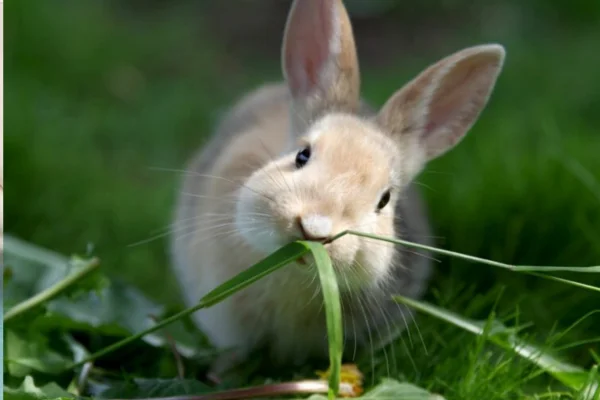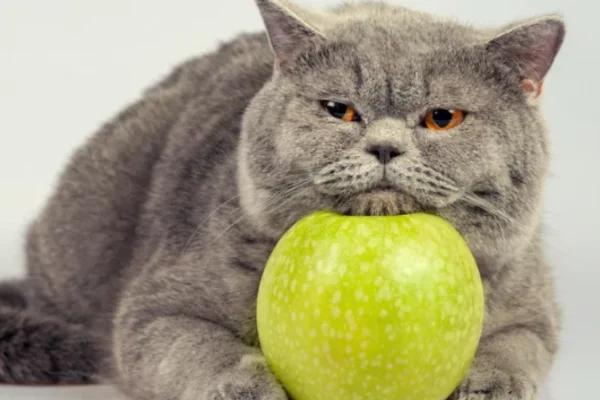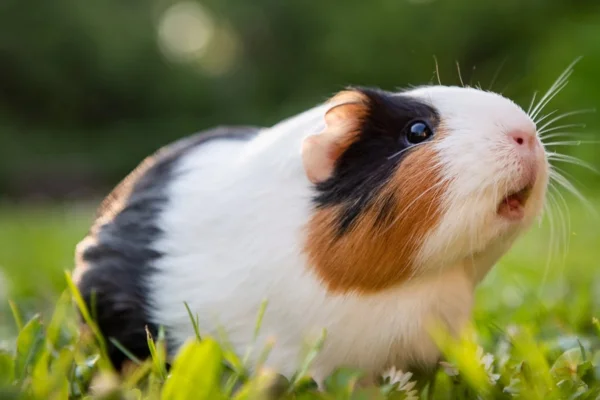Rabbit Vaccines
Protecting the Health of Our Little Companions
Rabbits are becoming increasingly popular as pets due to their calm temperament and irresistible cuteness. This also increases the responsibility of ensuring that they receive the proper care to live a long and healthy life. One of the most important aspects of rabbit health, but one that is still not as widespread as it should be, is vaccination.
Like dogs and cats, rabbits also need vaccinations to protect themselves against serious and potentially fatal diseases. Although rabbit vaccines are not as popular as those for other domestic animals, they play a crucial role in preventing diseases that can be devastating for these small mammals.
In this article, we'll clearly and objectively cover everything you need to know about rabbit vaccines, explaining their importance, which ones are recommended, the care required and the impact on the health of these adorable pets.
Contents
Why is Vaccinating Your Rabbit Essential?
Vaccinating rabbits is essential to prevent diseases that can often lead to the animal's quick and painful death. Many of these diseases are highly contagious and, without adequate protection, can spread quickly between rabbits in the same home, breeding farm or outdoor environment. Furthermore, with the increase in interactions between rabbits and other animals, and greater exposure to natural environments such as gardens, vaccination becomes an essential barrier to keeping these animals healthy.
Diseases such as myxomatosis and viral hemorrhagic disease (RHDV) are examples of infections that affect domestic and wild rabbits in various parts of the world. Both diseases are often fatal and, in many cases, the only effective way to protect your rabbit is through vaccination.
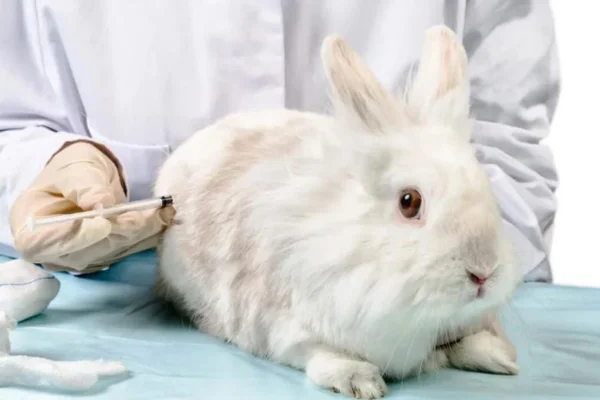
Main Vaccine-Preventable Diseases
Unlike dogs and cats, rabbits don't have such an extensive list of recommended vaccinations. However, the vaccines available are extremely important for their health. The main diseases that can be prevented by vaccines in rabbits are:
1. myxomatosis
Myxomatosis is a serious viral disease that affects rabbits and is mainly transmitted by fleas, mosquitoes and ticks. The causative virus belongs to the poxvirus family, and symptoms include severe swelling around the eyes, nose, mouth and genitals, as well as fever and lethargy. In many cases, death occurs within a few days of the onset of symptoms. Myxomatosis has a high mortality rate, and vaccination is the most effective form of prevention.
2. Rabbit Viral Hemorrhagic Disease (RHDV)
Viral hemorrhagic disease is caused by a calicivirus that affects both domestic and wild rabbits. There are two main types of this disease: RHDV1 and RHDV2. Both forms cause severe damage to the liver and other internal organs, resulting in hemorrhaging, high fever, difficulty breathing and often sudden death. Transmission occurs through direct contact between infected rabbits or through contaminated objects such as cages, clothing and food. Vaccination is the best way to protect rabbits from this deadly threat.
When and How to Vaccinate Rabbits?
Rabbits should be vaccinated from the age of five weeks, depending on the vet's recommendation. The vaccination protocol may vary depending on the country, region and the presence of certain diseases, but in general, rabbits are vaccinated annually against myxomatosis and RHDV.
It's important to remember that not all rabbits need to be vaccinated against all diseases. If the rabbit lives in an area where one of these diseases is not common, the vet may decide not to administer certain vaccines. However, this decision should always be based on a professional assessment.
In addition, rabbits that travel or take part in exhibitions need special care, as they may be exposed to new regions and different pathogens. Therefore, in these situations, vaccination is even more crucial to prevent infections and ensure the animal's safety.
What Vaccines Are Available?
There are currently combined vaccines available that protect against both myxomatosis and RHDV. These vaccines are given in a single injection, making the process easier for both the rabbit and the owner. In some countries, however, the vaccines for these diseases can be administered separately, depending on local legislation and veterinary practice.
Combined Vaccine (Myxomatosis and RHDV)
This is the most common and recommended vaccine for rabbits. It offers protection against both myxomatosis and viral hemorrhagic disease. It is usually administered once a year, although some vets may recommend six-monthly boosters in areas with constant disease outbreaks.
Possible Vaccine Reactions
Like any vaccine, rabbit vaccines can cause adverse reactions in some animals. However, these reactions are mostly mild and temporary. The most common side effects include lethargy, low-grade fever and tenderness at the application site. In rare cases, a more severe allergic reaction can occur, but this is extremely uncommon.
It is important to monitor the rabbit after vaccination and report any abnormal behavior to the vet. If the rabbit shows serious symptoms, such as difficulty breathing, swelling of the face or body, or collapse, immediate veterinary attention should be sought.
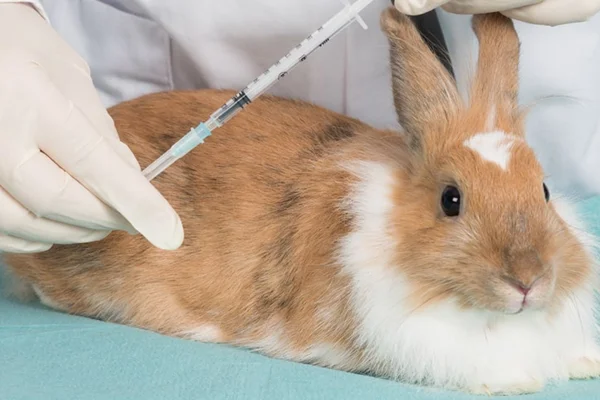
Post-vaccination care
After vaccination, rabbits may need some time to recover. They usually return to normal within 24 to 48 hours. During this time, it is recommended to provide a calm and comfortable environment, avoiding handling them excessively or exposing them to stress.
It's also good practice to keep your rabbit hydrated and make sure it has easy access to fresh food. In the event of a loss of appetite or other signs of prolonged discomfort, a return to the vet may be necessary to ensure that everything is fine.
The Importance of Regular Vet Appointments
Vaccinations are just one part of the care needed to ensure your rabbit's health. Regular visits to the vet help to detect any health problems early on and allow the professional to assess whether the vaccination schedule is appropriate for the animal's specific situation.
In addition, the vet can provide guidance on nutrition, hygiene and parasite control, all of which are essential factors for the rabbit's longevity and well-being. This small amount of care, combined with vaccination, forms a protective barrier against a series of problems that can arise throughout the rabbit's life.
Conclusion
Caring for a rabbit involves much more than providing it with a balanced diet and a suitable living space. Vaccination is an essential preventative measure that can save your pet's life, protecting them from serious and often fatal diseases. Although not all diseases are common in all regions, it is always best to ensure that your rabbit is protected, especially if it has contact with other animals or lives in an area prone to outbreaks.
If you have a rabbit or are thinking of adopting one, don't underestimate the importance of vaccinations. Talk to your trusted vet, follow the vaccination recommendations and remember that, just like any other pet, your rabbit depends on you to ensure it lives a healthy and happy life. With the right care, including regular vaccinations, your rabbit can be a loving and healthy companion for many years to come.
Othank you for visiting us, check out our other work
https://vettopbr.com/cachorros/

